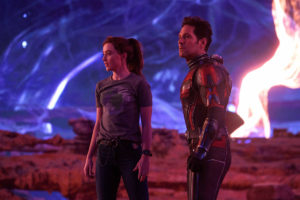“Monkey Man” delivers hard core action with a surprising amount of character.
First-time director Dev Patel comes out swinging with his new film “Monkey Man,” which released in theaters Friday. An unnamed nobody from the gutters of India (Dev Patel) seeks revenge on the corrupt leaders who took away his home and killed his mother. After his actions incite a revolution among the poor and powerless against the powerful, this character must train to become the symbol of their spiritual protector, the Monkey Man. While the film’s pacing may leave it feeling underdeveloped and at times disjointed, its stylized atmosphere and shot composition also give audiences everything they could ever want from a directorial debut.
[Related: Film review: ‘La Chimera’ unearths drama, romance through dreamlike film sequences]
Despite what the action-packed trailers make the film out to be, “Monkey Man” is not “John Wick,” and the film even makes a remark about this fact. The first proper action sequence occurs 40 minutes into the film, and the second one happens only in the last 20 minutes. This means that there are significant gaps within the film’s 121 minute runtime without any visually exciting moments. With that said, the non-action parts are interesting in their own right, as they build on the Hindu mythology of the Monkey Man, why Patel’s character wants revenge and the city’s corrupt underbelly. However, going from slow plot development to a 10 to 15 minute action scene is jarring, to say the least. This leaves the film feeling clunky and creates a pacing issue, making “Monkey Man” feel longer than it actually is.
Another issue is that even though Patel’s character gets proper development, other aspects of the story are lacking in comparison. The audience understands that the protagonist wants revenge, why he wants it and sees the steps he is taking to get it, but that is it. The script never fully specifies who he wants revenge on. Not only that, but for two of the three antagonistic figures, it is unclear what they did to Patel’s character to warrant his vengeance. It is said that the villains took away his home, but audiences are never told why they did it.
One of the antagonists is a rich, villainous figure, Baba Shakti (Makarand Deshpande), but audiences never see him being evil – they are merely given the impression that he is. Similarly, while it is understood that the protagonist’s retaliation against the corrupt incites a revolution with members of the lower class, the script doesn’t explore why this is the case. While it can probably be implied that the citizens are rebelling because they are tired of the corruption, the audience is never shown specific effects of said corruption. After the first action sequence, it is never explained why the people use this as a symbol to rally behind – a news broadcast simply says that a revolution is ensuing amongst the people. This lack of exploration of other characters and the stakes involved in the world cause the film to be underdeveloped in areas that could have elevated it beyond simply being another revenge movie.
Although this is the case, “Monkey Man” is an impressive revenge movie. Style is unmistakably on display with each and every scene of this movie, an impressive feat for a first-time director. Its shots are all incredibly dynamic and convey the chaotic nature of the world viewers are taken into. The clubs and nightlife are drowned in excessive neon lights that paint the frames and the fighting ring and VIP lounge each have their own distinct flavor of griminess. Additionally, the long takes that follow characters around the city feel like they are moving a million miles a minute along with the characters.
This is all elevated by the film’s killer soundtrack. The score is based in house music and rap and is orchestrated with traditional Indian instruments. Pop songs such as “Roxanne” by The Police also make an appearance and add to the nonstop world of violence, drugs and excitement of “Monkey Man.”
While the film only has two major action set pieces, they are both incredible. Patel’s fighting style is not that of a kung-fu master or brawler, instead, it is very acrobatic. He uses an array of kicks and defensive lunges in combat that give him a distinct style among other action heroes. Another great feature is how it is not always clear if Patel’s character will win the fight. He takes hits, gets injured and is knocked down constantly, creating a genuine feeling that he could die in almost any confrontation. This ensures each fight matters and has stakes, as opposed to it merely being action for action’s sake.
[Related: Film review: ‘Kung Fu Panda 4’ ends iconic franchise with a feeble kick]
The fight scenes are also shot almost as well as any “John Wick” film. Not only does “Monkey Man” use many well-edited “oners,” but it also makes the camera move in a lively way. First-person shots put the view directly in the middle of each fight. Whip pans allow the viewer to feel exactly how hard a character just got hit. The camera even follows the characters through barrel rolls as they get spun around. Sometimes, it is placed at the point of impact, focusing on the damage caused by each attack. The extremely well-executed choreography and camera work give the action its own sense of style in a pretty crowded genre.
Conclusively, while the film may not fully deliver on a story perspective due to its pacing and underdeveloped world and antagonists, there is a stunning sense of style that permeates every shot, sound and action scene.
“Monkey Man” is ultimately a successful first outing for director Dev Patel that shows he is not joking around.









Comments are closed.